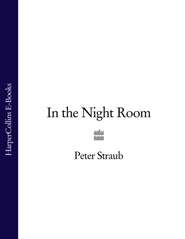По всем вопросам обращайтесь на: info@litportal.ru
(©) 2003-2024.
✖
Lost Boy Lost Girl
Автор
Год написания книги
2018
Настройки чтения
Размер шрифта
Высота строк
Поля
This is not the answer you were expecting, I’m sure. I’m sorry to stand in the way of you getting what you want, but you asked and I had to answer you truthfully. I’d rather think of you without a metal ball in your mouth than with one. Sorry, kiddo, but I love you anyhow.
Is there anything special you’d like me to get for your birthday? Maybe I can make up for being so boring and middle-class.
Uncle Tim
The next day two messages from his family turned up in his Inbox.
From: munderhill697@aol.com
To: tunderhill@nyc.rr.com
Sent: Monday, February 4, 2002 7:32 AM
Subject: Re: speak, o wise one
TYim, this is nme Philip using Mark’s computyer. Hje showed me what you wrote him. I hadf the feeling you’d do the right thing for once. So, well, thanks. IO hate that crap too.
From: munderhill697@aol.com
To: tunderhill@nyc.rr.com
Sent: Monday, February 4, 2002 5:31 PM
Subject: Re: speak, o wise one
>Is there anything special you’d like me to get for your birthday? now that you mention it, yep. ordnance. :)
m
For once, as his brother would put it, Tim was grateful for the Internet’s assumption that its users were incapable of perceiving a joke unaccompanied by a nudge in the ribs. Philip’s error-riddled message contained a different kind of reassurance – that of its having been sent at all.
During Pop’s life, the brothers had come together – meaning that Tim flew to Millhaven from New York – once or twice a year; in the five years since his death, they had scarcely spoken. Pop had come to New York once, as a widower of two years in his late seventies, saying that he wanted to see what all the fuss was about, and he had stayed in Tim’s loft at 55 Grand Street, which he had found awkward and discomfiting. His knees made the trek up and down three flights of stairs difficult, and Tim had overheard him complain to dear Michael Poole, who lived one floor up with the amazing and equally dear Maggie Lah, that he had imagined his son was at least rich enough to put in an elevator. (‘I used to run an elevator, you know,’ he told Michael. ‘At the famous St Alwyn Hotel, right there in Pigtown. All the big musicians stayed there, niggers included.’) The next day, at an informal little get-together Tim put together with Maggie Lah, Michael Poole, and Vinh Tran, who with Maggie owned and operated Saigon, the Vietnamese restaurant on the ground floor of 55 Grand Street, Pop turned to Michael and said, ‘You know something, Doctor? As far as I’m concerned, the whole world can blow up right soon’s I die, and I wouldn’t give a damn. Why should I?’
‘Doesn’t Tim’s brother have a son?’ Michael asked. ‘Don’t you care what happens to your grandchild?’
‘Not a hell of a lot.’
‘You a tough ol’ coot, aren’t you?’ Maggie said.
Pop grinned at her. Vodka had loosened him up to the point where he supposed this stunning Chinese woman could see through the cobwebby disguise of old age to the seductive rascal he was at heart. ‘I’m glad someone down here in New York City is smart enough to understand me,’ he said.
Tim realized he had read through three pages of the new George Pelecanos novel without registering anything more than individual words. He looked up the aisle to discover that the flight attendants handing out the wrapped lunches were only two rows in front of him. On Midwest Air, a one-class airline noted for its wide seats and attentive service, the approach of the in-flight meal could still arouse some interest.
A blond woman with a Smithsonian-quality Millhaven accent handed him a wrapped chicken Caesar salad, more than acceptable by airline standards, and a minute later her twin sister filled his Midwest Air wine glass a quarter of an inch above the line with a decent cabernet, and when he had taken a sip and let it slide down his throat, it came to Tim Underhill that for the past twenty minutes, when he was supposed to be enjoying George Pelecanos as a kind of palate cleanser before making notes for his new and highly uncharacteristic project, he had been engaged in the fruitless task of obsessing about his brother.
If he actually did intend to accomplish any work during this trip, which in spite of everything he hoped he might, he was going to have to stop brooding about his brother and dedicate at least some of his attention to a surprisingly little known figure in American life, Dr Herman Mudgett, a.k.a. H. H. Holmes. Probably the country’s first serial killer and undoubtedly one of its most prolific, Mudgett had adopted the surname of a famous fictional detective and constructed in Chicago a monstrous murder palace in the form of a hotel just in time to siphon off young women in town to attend the 1893 Columbian Exposition. In his vast hotel, he killed almost every woman who became involved with him to a degree greater than serving him breakfast in a local restaurant or selling him collars and cravats at the haberdashery. LD Bechtel, a young musician of Tim’s acquaintance, had suggested that they collaborate on a chamber opera about Holmes, and for the past two months this project had occupied a portion of his thoughts.
He knew when he had first begun to see his own access into it. The moment had been the result of various unrelated objects producing a small but vital electrical pulse when accidentally joined together. He had gone out to loaf through the St Mark’s Bookshop and pick up a cup of coffee at Starbucks, and the first element of his inspiration had been an odd slogan stenciled atop a high, rounded Spring Street gutter passed on his eastward trek. The stencil had just been applied, and the ink glistened. It consisted of four words, all lowercase: lost boy lost girl. Downtown indierock bands sometimes advertised themselves by stenciling their names on sidewalks, and Tim had known of a couple of small presses that did the same with titles of books they did not have the money otherwise to promote. He supposed that somewhere, someone had done it with a movie title. Whatever it was, he liked the phrase and hoped he would remember to notice where it might crop up again.
In St Mark’s Bookshop, he cruised the New Fiction tables and pulled a copy of John Ashbery’s Chinese Whispers from a poetry shelf. Any new book by John Ashbery was an automatic purchase. At a big table stacked with oversized art books, he picked up a jumbo-sized collection of Magritte paintings, opened it at random, and found himself looking for maybe the hundredth time at a painting called Not to Be Reproduced, in which a young man with a fine head of hair stands, his back to the painter and the viewer, looking into a mirror that reproduces, instead of his face, the back of his head. He is looking at an image of himself that looks away from him. Because his face is not visible, the young man has no face.
Then it happened: Tim felt the unmistakable tingle of the little electrical pulse and told himself that he was looking at a portrait of H. H. Holmes. His access, his way in, was a kind of feel, a kind of tone – the feeling aroused in him by the Magritte painting. As a painting, it was a virtual Chinese whisper, or could be seen that way, always leaning toward a further misprision. It was one of the creepiest of all surrealist paintings, and the feelings it awakened in him had all to do with dread. Tim could see their H. H. Holmes, his and LD’s, before the furnace in which he had incinerated his victims, his back to the audience, singing his lungs out and posed more like an icon than a man. The image contained a kind of splendor that all but brought its music into audibility. With his inner ear, Tim could hear their little orchestra hammering and beating away, and it sounded gorgeous. We’re going to do this, he said to himself.
When he passed Spring Street on his way home, he looked down to see the enigmatic lost boy lost girl, but the slogan had disappeared, as though the fresh ink had melted into the smooth concrete of the curb. Impossible, he thought, I’m on the wrong corner. It was not the wrong corner, he knew, but for three or four blocks he kept looking at the curb, and abandoned the search only when he began to feel foolish.
Now it came to him that he was going back to a city perfectly attuned to his project. Millhaven had struck him as essentially surreal ever since he had left it for the first time. Nancy Underhill would have had no appetite for the surreal. She had been required to stand up to Philip for the decade and a half when they had skulked from neighborhood to neighborhood until returning to within two blocks of the house on Auer Avenue where Timothy and Philip were born to Mom and Pop Underhill. Had something in the scruffy old part of the city once known as Pigtown, with its two-story houses burdened with dark, suspicious-looking porches, its tiny sloping lawns and narrow alleyways, the ugly rows of liquor stores, diners, and cheap clothing outlets on its avenues, reached out for funny little Nancy Underhill and taken her life? Had some person from that world killed her?
His next thought shamed Tim even as it formed itself into coherence: his brother’s wife had seemed almost too self-effacing, you could say too unimportant, to get murdered.
Forty minutes before the plane set down, the rich, delicious smell of chocolate-chip cookies baking golden brown filled the cabin. Midwest Air served freshly baked chocolate-chip cookies on every flight long enough to include a meal. Ten minutes later, the flight attendant leaned toward him and, winking, handed over a paper napkin holding three warm cookies, one more than the usual ration. She smiled at him.
‘Do you know who was in your seat on yesterday’s flight?’
He shook his head.
‘That actor who was in Family Ties.’
‘Michael J. Fox?’
‘No, the one who played his father.’ She looked away for a second. ‘He must be really old by now. He still looks pretty good, though.’
Tim raised the first cookie to his mouth. Its wonderful fragrance seemed to move directly into the center of his head, making him ravenous. What was the name of that actor, anyhow? Michael somebody: he’d had a nice quality, like Alan Alda without the smarm. The cryptic phrase stenciled on a Spring Street curb came back to him. lost boy lost girl.
How on earth, he wondered, had Nancy died?
2 (#ulink_2c07f6fa-3207-5e48-a678-91658c1671ec)
THE OBITUARY NOTICE in that morning’s Ledger told him nothing but Nancy’s age, family details, and funeral information. There was no photograph. For Nancy’s sake, Tim felt grateful. He had known his sister-in-law at least well enough to feel sure that she would have hated having the only photograph of her to appear in the city newspaper run after her death. Tim looked again at the obituary’s few column inches and realized that it had been published four days after Nancy’s death. Wasn’t that later than usual? Perhaps not. And it contained nothing about the cause of death but the words ‘without warning.’ Without warning Nancy Kalendar Underhill, wife to Philip, mother to Mark, a resident of 3324 North Superior Street in Millhaven’s Sherman Park district, had been taken from her devoted family and loving friends. Without warning had she laid down her spatula and mixing bowl, stripped off her comely apron, straightened her arms by her sides, and zoomed away from the surface of the earth at a nice, sharp forty-five-degree angle.
Tim experienced a peculiar tumult in the region of his heart. Yes, that was exactly what Nancy had done. The shock of the recognition made him go to the edge of the bed and sit down, fast. Of her own volition had Nancy shot rocketlike off the planet. Philip’s wife and Mark’s mother had killed herself. Now Tim understood how he could have failed to grasp the situation from the beginning. Philip’s voice, Philip’s words had thwarted him. The voice sounded tamped down, flattened out to stifle any emotion that might shine through: Philip with someone standing on his throat. That had been Philip, standing on his own throat. Philip would be happiest if Tim were never to learn that Nancy had not died in her sleep. He would feel that the knowledge meant a personal loss, that some degree of power had been transferred into his brother’s hands. The tight, stepped-on voice therefore had divulged as little information as possible. I thought you should know that Nancy unexpectedly passed away yesterday afternoon. It happened very suddenly, and I guess you couldsay I’m in shock. In shock. Probably will be for a while, huh? You don’t have to tell me right away, but let me know if you want to come here for the viewing on Friday and the funeral and all that on Saturday afternoon.
Philip might as well have been speaking to an answering machine.
I don’t suppose you’ll want to stay here, will you? When did you ever want to stay here?
Tim’s heart trembled at the thought of what Mark must be going through.
He found that he was holding his hands clamped down over the top of his head, as if to keep this new information from bouncing around the hotel room, spattering blood as it went. Feeling like Philip, he lowered his hands and for a moment concentrated on his breathing. What could he say to his brother?
With this question came a great, dirty tide of misery and despair, at its center a piercing bolt of pain for Nancy Underhill, for how she must have felt in the weeks and days before. That was monstrous, obscene. Tim made up his mind on the spot: he would not leave Millhaven without knowing why Nancy had killed herself. It was as though she herself had given him the charge.
From Timothy Underhill’s journal, 12 June 2003
I’m checked into the Pforzheimer, and just to make sure I realize that I am once again back in my hometown, Millhaven voices are rolling through my head. My nephew Mark’s sweet e-mail voice; Philip’s dour rumble. Even Pop’s smoky rasp. In the midst of all these voices, why not listen to Nancy’s, too?
Nancy’s voice was soft, tennis-ball fuzzy. She once asked me, How do you write a book, anyhow? Heart in mouth, I said. She gave me a lovely laugh, her eyes half-closed. Nancy handled customer complaints for the Millhaven Gas Company. Philip, the vice principal of John Quincy Adams Junior High and High School (‘Quincy’), wanted her to quit. He thought that having people yell at his wife all day was beneath him, though when you came down to it, the nuts and bolts of his job weren’t all that different. That Nancy could be funny about her job annoyed Philip. If she was going to insist on going to that office every day, at least she could have the decency to show its cost; that was Philip’s point of view. All day long, these ignorant black dumbbells are calling her ‘mother-fucker,’ Philip had once stage-whispered to him. Tell me you could take that every day.
Philip, she had said, they’re not ignorant, they’re not dumb, and they’re certainly not all black. They’re just afraid they’ll freeze to death if they lose their gas. We work out a little deal, that’s all.









